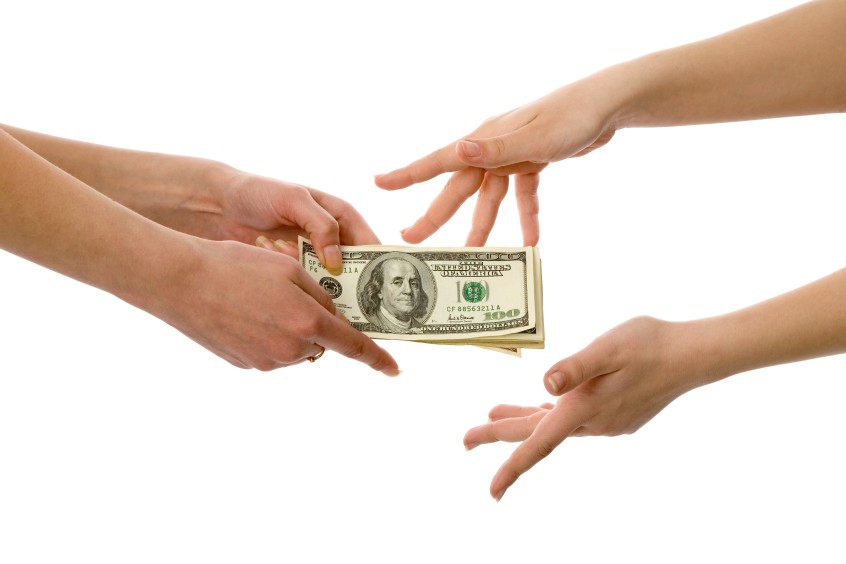Ever feel like when you’re too nice people take advantage of you? You want to help others and you’re willing to put the needs of others above your own needs but then you discover that your intentions to do good are overridden by ungrateful recipients who then expect you to give even more.
At some point, when you’re feeling like you’re at the end of your rope and you have nothing left to give, you can regret trying to help anyone at all, like you’ve done it wrong, or didn’t do it right.
You know something’s wrong because you don’t feel good anymore. You used to feel good when you could reach out and help someone in need, but now, you feel bad, that when you’re too nice people take advantage of you.
As nice as you’re trying to be in your helping others, there will be times when people will try to exploit your good intentions by taking advantage of your willingness to help others and put their needs ahead of your own.
As soon as you start to notice this, you need to step back and evaluate the situation. Ask yourself,
Am I being too nice?
Is my kindness actually counterproductive?
Is my helping someone doing more harm than good?
If you’re feeling like when you’re too nice, people take advantage of you, you might be making things worse than better. Some people will intentionally take advantage or your willingness to help as a way to further their own needs with little or no respect for your self-sacrifice when your resources are low.
Helping others is a two-way street.
When you help others, there is a proper response: To show gratitude and to take action. To help others or to offer something in return. A healthy relationship is to graciously receive and to give something back in return.
To just take and take is selfish and considered toxic. This is when you start to feel bad about being such a good person. You may find yourself enabling someone’s poor behavior by being too helpful.
Why are you helping others? Because you’re trying to help people to help themselves. When they refuse to help themselves, the equation is out of balance. This is when your assistance is doing more harm than good.
It’s time to communicate your concerns to those who are taking advantage of you and your generous nature. Chances are, you are not an unlimited supply of help to others. You must receive something in return, or you will begin to deteriorate.
Now is the time to set clear boundaries about what help you are willing to offer in exchange for seeing some fruit from your willingness to help someone in need. Setting clear expectations and requiring others to in a sense, so their part, is healthy helping.
You can tell others how it is without being judgmental or mean. You can still be respectful of others without being mean or disrespectful. Life is not always easy, and the best things in life come from stretching one’s self to accept the challenge of self-care.
Taking care of yourself is just as important as those who you are helping other to learn how to better care for themselves, also.
Don’t apologize for over-extending yourself or for placing the people you are helping in a difficult situation, for you know things are far better than they would have been without the assistance you’ve provided up ‘til this point.
If you are empathetic, you can feel what it’s like to be in need, and may even be able to think,
What if it was me in need?
How would I feel?
More importantly, you need to think,
How would I react if someone else was helping me?
Would you take advantage, and not offer something in return? Probably not, because you know that someone’s sacrificing for your benefit should some with gratitude or some kind of reward. Maybe the best you could do was to show the person that helped you that their assistance enabled you to get back on your own feet, and gave you the nudge necessary to take charge of your own life and help others in need.
Saying, “No,” to someone you care about can be difficult, but you know it’s necessary to preserve your own cache of resources. What good would you be if all your resources were depleted by someone’s taking advantage of your good nature?
If this relationship has become toxic, then the time has come to put an end to it. To let it continue would be nothing less than abusive. Abusive to yourself as well as the people who you are trying to help if they are not stepping up to the plate.
Only you can take care of yourself, and this is critical to maintaining self-care if you are going to be able to help others. Also, others need to learn to face life head-on and to see them tending to their own needs.
Help them, yes. But not so much as to make them dependent on you, or to have the expectation that you will help them without expecting them to carry their own weight. You will be doing them a favor by having them step up their game or letting them go it alone.
Thank you for being one of the “good ones.” It inspires us all to be better people and to do good unto others.
There is much love for you here.
Continue to be true to you.

